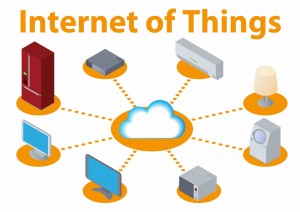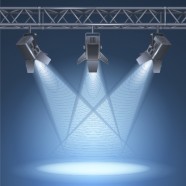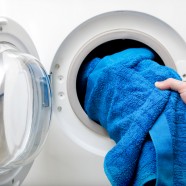Understanding the Electrical Components of Building a Custom Home
When planning your dream home you’ll probably draw up a portfolio showing new bedrooms, a dedicated outdoor kitchen, or even a fully finished apartment in the basement. Custom homes are exactly what you want them to be, with virtually no rules about what to include. The electrical components of your house plan might seem like the boring part of the project, but new construction electrical details determine how you’ll enjoy your new home throughout the year.
Backup Power
Power outages are a fact of life in southern Florida, between tropical storms, lightning strikes, and aging infrastructures. One of the smartest additions you can make to your custom home plans is elements for a backup power supply and protection from blackout damage. Sudden power outages can endanger computers and other delicate electronics, while prolonged blackouts can cause dangerous heat in the summer and loss of frozen food throughout the year. Some of the additions you may add to your plan are:
- A backup generator. If you’ll only need to power a refrigerator, air conditioner, and some lights, a portable generator may be all you need. For larger power needs such as medical machines and whole-house convenience, this is the time to build in a permanent backup generator.
- Dedicated circuits. With the computers in the house on a separate line, they’re less likely to be damaged from storm-related surges when the power goes out, and also when it comes back on.
- Surge suppressors are good for temporary power outages, preventing large surges of electricity from burning out delicate components.
A high-end circuit breaker is necessary for electronics safety, as are emergency lights for outdoor use during power outages.
Wiring New Construction Electrical Projects
The best time to put wiring into a home is before the walls have been built. You might be thinking of installing cable to multiple rooms in the house, but a fiber optic system will provide lightning fast data for not much more money. As a bonus, fiber optics keep working when the electricity goes out, unlike ordinary cable.
If you work at home, you may want to consider building an ethernet cable into the office or spare bedroom. The wiring for a computer network is also a good idea, even if you don’t think you’ll use it right away. It’s always harder to install residential electrical systems after the fact, and it will sit in the wall, passive, until you decide to start creating the network.
Entertainment
If you’re a movie buff, love your stereo equipment, or you have children, a dedicated entertainment room can be a serious choice. Gather all your equipment into one room that’s equipped with datacomm lines, extra electrical outlets for multiple pieces of equipment, lighting with dimmer switches, and even dedicated outlets for a small refrigerator and popcorn maker. New construction electrical systems don’t have to all be about technical details; sometimes they’re just about making your daily life better.
Lightning Protection
Lightning is a fact of life in Florida, the state that gets more lightning strikes than any other in the country. The odds are good that lightning is going to strike somewhere near your house sometime in the future. Installing lightning rods, or air terminals as they’re called today, is the best way to prevent fire and physical damage to your home when it happens. Today’s lightning protection is so small and subtle you probably won’t notice it when you see it, but it packs a large amount of protection in that little footprint. Most custom homes include elaborate landscaping features, and your new construction electrical contractor can add copper lighting diverter lines connecting the largest trees to the ground, leading dangerous lightning from your treetops to a safe spot away from your home.
Read MoreGet Money Back from Tax for Installing a Home Standby Generator
Florida is known as the lightning capital of the country, and between lightning, tropical storms, hurricanes and accidents, power outages are a frequent fact of life. If it’s short-lived it may be just an inconvenience, but if your health or business rely on a steady source of power, even the briefest outage can be a severe problem. The best way to ensure you have a steady source of power is to install a home standby generator.
In addition to the obvious advantages of having a reliable power source, you can also use some of the cost of a generator as a deduction on your federal income tax. With three different ways to take advantage of the tax code, it’s likely that you can find at least one way to deduct a portion of the costs of installing a home standby generator.
Capital Gains Tax Credits
As with all the advice in this post, check with a tax attorney or accountant to determine your individual tax liability and the ability to use any credits. If you sell a home and purchase a new one within a certain amount of time, you’ll avoid paying a capital gains tax on the sale of your old home. If you’ve done this more than once, however, you may still owe taxes on the capital gains. Selling a home and not buying another one will automatically cause you to be liable for the taxes, but if you’ve installed a whole house backup generator, you may be able to take a capital gains tax credit, reducing your tax bill at the end of the year.
Energy Tax Credits
The federal government subsidizes renewable energy such as wind and water, but many states will give you an energy tax credit if you install a natural gas, whole-house generator. This is because natural gas is a greener fuel, creating less of a carbon footprint. If you opt for a home standby generator that has the ability to run on biofuel such as that created in landfills, you may be eligible for an additional tax credit or even an alternate fuel grant. Your state energy department will have all the information needed available for you and your accountant.
Medical Needs
If your doctor will verify that a continuous supply of power is crucial for your health and well being, you may be eligible for a tax credit for your generator. You’ll need to itemize your deductions at the end of the tax year. Once itemized, every bit of legitimate medical expenses over the legal limit, which is 7 to 10 percent of your gross income, is deductible. The power has to be a crucial factor for keeping either you or a family member alive and healthy, and you’ll have to include a certified letter from a medical doctor detailing the medical condition and swearing that a constant power supply is a medical necessity. Depending on your income, you may be able to write off some or even all of the expense of having a backup generator installed in your home.
Natural Disasters
While not a tax deduction, FEMA does offer reimbursements for electrical generators in case of a national or local emergency. The program starts when your governor declares a state of emergency, and it will continue until the power comes back on. Have your whole house backup system installed or buy a portable generator during that time, and you can be eligible for getting the entire cost of the generator reimbursed.
There are multiple ways to reduce the cost of installing a home standby generator, but the benefit of having reliable power is priceless. Call us today to discuss how we can help meet your needs while saving you money.
Read MoreHow the Internet of Things Will Affect Residential Electrical
 Think of a home that cools the air when you walk in the door, that makes a grocery list for you based on the food you take from the refrigerator, and that turns your sprinkler off and on depending on the local weather reports. This home of the future is now, and it’s based on a concept called the Internet of Things. It’s the basis of houses called “smart homes”: a super-connected network of appliances and systems that run as one smooth process to make your life more comfortable, save energy, and be frugal, all at the same time.
Think of a home that cools the air when you walk in the door, that makes a grocery list for you based on the food you take from the refrigerator, and that turns your sprinkler off and on depending on the local weather reports. This home of the future is now, and it’s based on a concept called the Internet of Things. It’s the basis of houses called “smart homes”: a super-connected network of appliances and systems that run as one smooth process to make your life more comfortable, save energy, and be frugal, all at the same time.
Electrical Costs
Homes with advanced residential electrical systems will eventually base their cost and usage on the time the electricity turns on, as well as the amount of power used. Electricity is more expensive to produce during the middle of a hot summer day than on a fall evening. Electrical usage costs should be based on the actual cost of producing this power, not an average cost over the length of the month. If you’re frugal and only use lights at night when needed and keep your air conditioning usage to a bare minimum, you should be able to reap the benefits of that frugality. With the Internet of Things, a home’s electrical system will be so connected that you’ll see energy savings on a daily basis simply because of the way you use your utilities.
Smart Appliances
The idea of finding energy savings simply by timing your dishwasher and dryer loads may seem too complicated, but with smart technology it will be a basic part of running the appliances. When electrical power is cheaper in the evening or in the middle of the night, large appliances will have settings allowing you to fill them and then pause the action until later in the day. Your clothes and dishes will still be clean tomorrow, but you’ll use much cheaper power for doing the same job. Household chores will no longer be solely the province of someone filling time during an off day. It will be natural for everyone to fill and set machines, since it will be more important to have them run later than to have the work done at the certain time during the day.
Air Conditioning
A good part of energy conservation in south Florida depends on air conditioning usage for a great part of the year. More than any other appliance, the air conditioning unit uses up power at an increasing pace as the year moves forward. The Internet of Things will include smart A/C units and thermostats connected to heat sensors in each room of the house. When the system finds a human body in one room, it can kick on and cool the air selectively to make that person comfortable. Once the residents leave the home for the day, a smart home system will shut down to use a minimum of power, creating energy savings for the duration of the day. Cooling the home later in the day when the residents are home will reduce power usage while still keeping everyone cool and comfortable.
Anticipation
The Internet of Things doesn’t just mean having a toaster and dishwasher that turn themselves off when you’re off to work. It’s an interconnected system that combines smart appliances, an intelligent utility system and a power grid that is responsive to power usage and able to ebb and flow with the environment as well as human usage. Homes with this type of system will notice when people haven’t been in the home for a day or two and will turn off the water heater to save power. It will automatically turn alarms on and off based on when body heat is present or absent in the building, and even email the utility company when power needs to be throttled down to the home when you’re on vacation. The Internet of Things is the use of technology in ways that achieve energy conservation, but it’s also about having a more comfortable and convenient lifestyle.
Read MoreGet Your Electrical Contractor to Install Vital Safety and Security Measures
In order for your home or business to be usable, it not only needs to be beautiful but also safe and secure. An electrical contractor is your go-to person when it comes to renovating a house or installing wiring on a new business, but that’s not all he can do for you. An electrician can advise you about safety and security additions you can use in your home, as well as installing them once you decide on a project. Homes and businesses may have different purposes, but in many ways their security and safety needs are very similar.
GFI Sockets
Unregulated electrical current can pose a danger to curious small children as well as employees in a commercial kitchen. When a person is being shocked, it’s the continued effect of the electric current that does real damage to their health. A GFI or Ground Fault Interruptor, is designed to stop the electrical current running to a particular outlet if there is an abnormal diversion of the current. If anything untoward happens while the outlet is in use, a circuit breaker built into the outlet immediately cuts off the power, preventing further injury. GFI outlets are especially common in places where water is present such as bathrooms and kitchens in the home, as well as commercial kitchens and restrooms in businesses of all types.
Emergency Lights
Emergency lighting is the smallest and least expensive form of lighting in case of a power outage, but it provides enough illumination to get yourself and others around you outside safely without running into sharp furniture corners or hot commercial ovens. Emergency light sets are installed over doorways and contain rechargeable batteries connected to a power source. Passive until the power goes out, they then turn themselves on, showing the way to every exit in the room. All emergency exit lights have a lighted face, but many of them also include small spotlights to add further illumination to the room. These lights are mandatory in almost all businesses, but can be installed in homes, as well.
Floodlights
A good percentage of the theft in businesses and homes happens after dark. Thieves feel safer burglarizing buildings when it’s more difficult for people to see them. One of the best ways to prevent this from happening is to light up the outside of your building to make it much easier for people to spot anything illegal that may be happening. Floodlights can be installed in a number of different locations, depending on the landscaping on your property:
- On top of a tall pole
- On the corners of the building
- Hidden in shrubbery
- Attached to sturdy tree branches
Of the two basic types of floodlights, most businesses choose a permanent light, one that runs all night long and is set on a timer. Many homeowners opt for the other type, one that has a motion sensor. The light doesn’t work if nothing is in the yard, but if the motion sensor detects anything moving around on the property, the bright lights will come on, shining on whatever is moving outside.
Alarm Systems
Burglar alarms are the most common basic defense against breaking and entering. In order for an alarm system to work correctly, a licensed professional such as an electrical contractor should do the installation. Most home alarms are connected to entrances such as doors and windows, especially those on the first floor. Alarms on the second floor are less common, but can be installed for additional protection. Businesses install alarms on all doors and windows, and some businesses invest in additional motion sensor technology, especially in the case of stores with valuable merchandise on display. Most alarm systems will sound some sort of noise or warning when they are set off, and all of them should be connected to a phone line so that an automated message can be sent to the police or alarm monitoring company.
Read MoreSaving Energy Costs by Changing Small Habits
It’s the little things in life that make the most impact. The experts can do studies all day long about the average cost of using each appliance, but it’s the actual way you use it that determines how much you’re going to have to pay. Changing out light bulbs for efficient LED lights and replacing old appliances with new and greener versions is a good start toward saving energy costs, but your daily habits can undermine all that good planning if you’re used to squandering power. Take a look at the way you habitually use your appliances to see if you’re secretly wasting energy without even knowing it.
Washer and Dryer
Your washer and dryer can each cost over $100 a year to operate, so getting the most efficient use out of each one should be high on your frugal savings list. Setting up your laundry the right way and doing it all on one day is the way to start. Drying clothes one batch after another will take advantage of the residual heat, saving dryer electrical costs. Separate your clothes into lighter loads and heavier ones, and dry the lighter ones outdoors if possible. Pull the clothes from the dryer before they’re completely dry and hang them up for a wrinkle-free wardrobe. Never run a partial load, of course, and never run the dryer without first emptying the lint filter for the most efficient use.
Stove and Oven
If you’re trying to save money you’ll have to cook every day, as eating out constantly won’t be an option. Common sense use with your stove and oven can result in significant savings.
- Cook elsewhere whenever possible. Use a toaster oven for small pans of food and grill outside during warm weather to save oven energy as well as air conditioning costs
- Use the oven efficiently. Keep the door shut until at least the minimum cooking time has passed, to save money on lost heat. Turn the oven off five minutes before baked goods are done, and ten minutes in the case of meats. The residual heat will finish cooking without loss of food quality.
- Use smaller pots on smaller burners, and cover them with tight-fitting lids as often as possible. Change your pots to those with copper bottoms for the most efficient heat distribution.
- Buy or make stove reflector pans to place around burners. The shiny surface will reflect the heat and direct it upward instead of it being lost out the sides. Your grandmother and her aluminum foil around her burners was right.
Refrigerator and Freezer
Depending on its age and use, your refrigerator/freezer can be the most expensive appliance in the house. Fortunately, it’s also the one appliance that the easiest to save money with, just by changing your habits and usage.
- Start by always keeping your freezer full. The motor runs more efficiently if it doesn’t have to cool empty spaces. If you don’t have enough food to fill the space, fill milk jugs with water and use them to fill the empty spaces.
- Keep it clean to keep it efficient. Clean the rubber gaskets around the doors to remove any food or debris that can keep it from forming an airtight seal, and replace any gasket that’s cracking. Also, vacuum the fan on the back of the refrigerator once a month. Excess dust makes the motor work overtime, and clearing the area will smooth the way to saving energy costs.
- Change the refrigerator temperature to 38 degrees. You’ll still keep your food cold without allowing it to go into the food safety danger zone, but you’ll save energy by raising the temp a bit higher above freezing.
- That fridge in the man cave? If you’ve got one, replace it with a smaller apartment-sized version or, better yet, a cooler with a bag of ice. Donate the family sized version to a charity that will haul it away.
Miscellaneous
Even smaller changes can reap big savings. Did you know that the average small electric room heater costs around $300 a year to run? They among the most inefficient pieces of equipment you might have in your house. Substitute warm socks, slippers, sweaters, and electric blankets, and insulate your windows to prevent drafts in the winter so you can get rid of that energy waster.
Use kitchen and bath fans to remove moisture and smoke, but turn them off immediately after you use them.
Turn your dishwasher to economy mode to save water and electricity, or do the dishes by hand once or twice a week.
Read More
Requirements for Electrical Companies in South Florida to Succeed
They may not have to deal with the effects of lake-effect snowstorms, but electrical companies in South Florida have weather issues of their own they have to work through. Like professionals in any area, South Florida electricians must be experts at dealing with the unique problems their environment poses, while maintaining the highest professional standards. Much of South Florida is under renovation and gentrification, and local electricians must be expert at upgrading older wiring and fixtures while still retaining the flavor of older historic buildings and neighborhoods. These professionals must have the training and experience of electricians in any other part of the country, but should also have specialized knowledge of the problems unique to the South Florida area.
Alternate Power Supplies
Between lightning storms, hurricanes, tropical storms, and an aging infrastructure, South Florida is subject to power outages on an increasing basis. Homeowners can be inconvenienced by this, but businesses bear the brunt of a power outage simply by being shut down until the power comes back on. Electrical companies in South Florida have to be experts in backup generators, installing alternate power supplies for homes and businesses. They know the amount of power needed for a bare minimum in a household simply to keep the freezer and lights going, all the way up to a permanent installation that can power a health clinic or emergency community cooling station.
Lightning Protection
Florida has more lightning strikes per square mile than any other state in the country, and the South Florida area gets its fair share of strikes. A lightning bolt hitting a building can cause physical injury, damage to electrical systems and even fire if it’s not dealt with correctly. Air terminals, which used to be called lightning rods, can redirect the power from a lightning bolt to a buried grounding spot away from a building. South Florida electrical companies know how to calculate the correct number of air terminals according to a building’s square footage and height. They are also experts at installing surge suppression for delicate machinery and equipment inside homes and businesses, to prevent expensive data loss and systems failures in the case of an electrical storm in the neighborhood.
Renovation
While the basics of electrical renovation may be similar throughout the country, electrical companies in South Florida have some special considerations to keep in mind when doing their job. The area’s stucco walls, curved shapes, Art Deco flavor, and pastel tones are unique to this part of the country, and it’s a flavor that clients want to preserve when redoing the bones of a building. Local electricians know how to update older wiring that may be corroded by constant contact with salt air, while preserving the look and feel of a Jazz age neighborhood.
New Construction
Electrical companies in this area are more aware of the effects of weather on their construction than in many other parts of the country. They know about the problem of lightning strikes, so they must design air terminals into their wiring plans. Power outages are a fact of life in South Florida, so a backup power supply is a common addition to their plans. The year-round warmth inspires many residents to install elaborate landscaping, so outdoor lighting of all types is a large part of many wiring plans, and ceiling fans are the norm in almost every room in a house. Commercial electricians know to insulate wiring extremely well to help eliminate the problems with salt water corrosion, and they acknowledge that this is a growing area of the state, so they build a job with the next ten years in mind.
Read More





Recent Comments